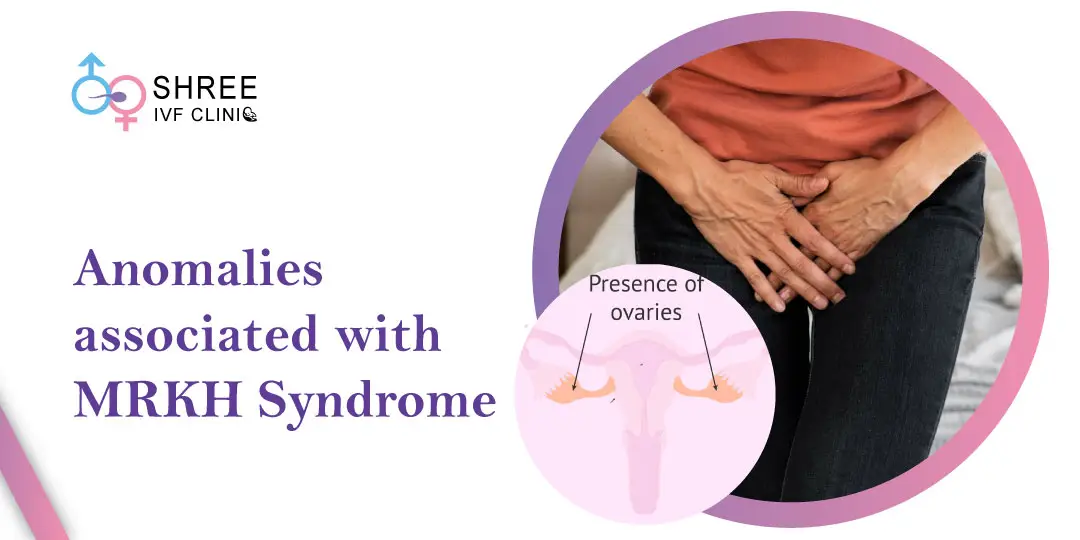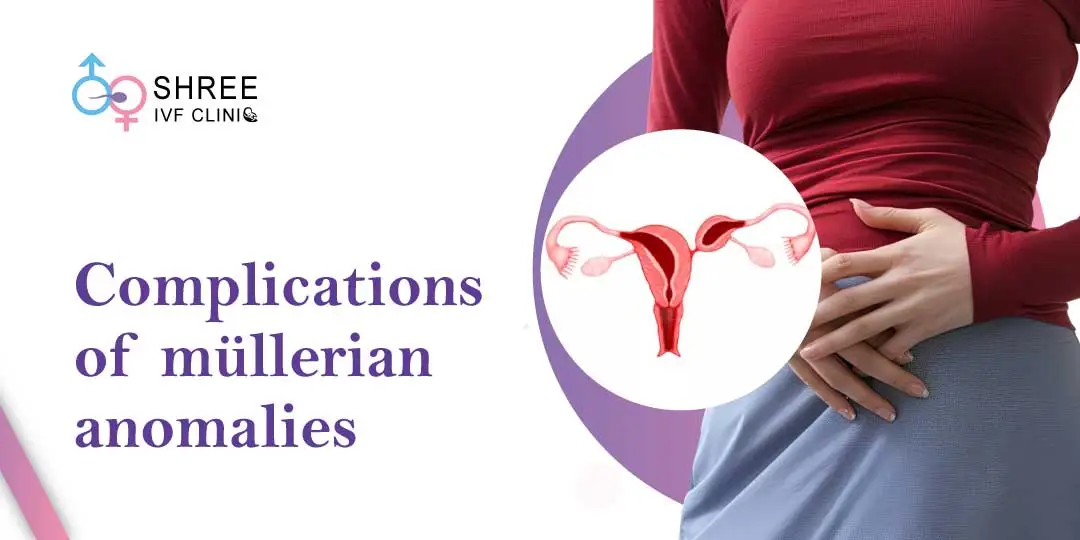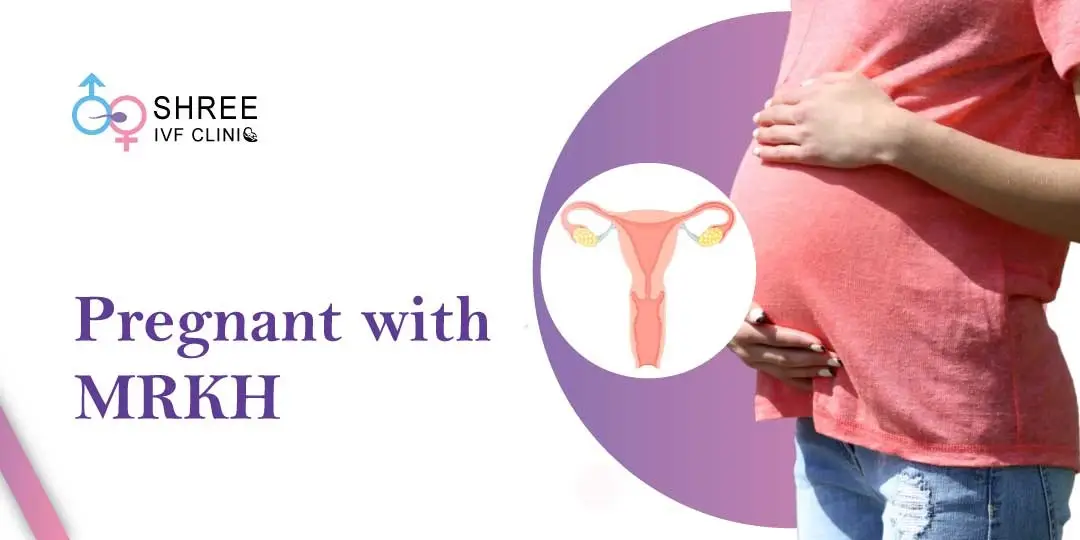MRKH Syndrome: Health Complications Beyond Reproductive System Anomalies
UPDATED ON 01ST MAR. 2024
Mayer-Rokitansky-Küster-Hauser (MRKH) syndrome is a congenital condition that affects approximately one in every 5000 women globally. The primary characteristic of this syndrome is the underdevelopment or absence of the uterus and vagina, which significantly impacts a woman’s fertility.
However, MRKH syndrome’s implications are not confined to the reproductive system. It also influences various other aspects of a woman’s health, including spinal complications and renal anomalies. We aim to shed light on these lesser-known health implications, offering a deeper understanding of this complex condition.

AUTHOR
Dr Jay Mehta
Scientific Director & IVF Specialist with 10+ years of experience
CONDITION
GET IN TOUCH ON
Unravelling the Complexity of Reproductive System Anomalies
In MRKH syndrome, the uterus may be underdeveloped or completely absent, and the upper part of the vagina may also be affected. This presents significant challenges for women desiring to bear children, as the uterus plays a critical role in pregnancy.
Moreover, the condition may also impact sexual health, potentially making intercourse painful or even impossible. Fortunately, medical science has made significant strides in recent years, with uterine transplants and assisted reproductive techniques now providing new avenues of hope for women diagnosed with MRKH syndrome.
The Psychological and Emotional Toll of MRKH Syndrome
The diagnosis of MRKH syndrome often comes as a profound shock to young women and their families. The inability to bear children naturally and the societal stigma associated with this can trigger feelings of inadequacy, isolation, and depression. It’s crucial that gynaecologists offer emotional support and psychological counselling to help individuals navigate the emotional turmoil that often accompanies such a diagnosis.
Hormonal Balance and MRKH Syndrome
Despite the absence or underdevelopment of the uterus, women with MRKH syndrome typically have normal hormone levels since the ovaries are usually unaffected. However, hormonal imbalances can occur due to stress or other underlying conditions, which can further complicate the individual’s health. Endocrinologists can help manage these challenges with appropriate treatment plans, ensuring hormonal health is maintained.
Vertebral Complications: A Lesser-Known Aspect of MRKH Syndrome
Vertebral anomalies such as scoliosis or other spinal malformations are potential complications of MRKH syndrome. While not as well-known as the reproductive implications, these issues can significantly impact an individual’s quality of life and overall health. Regular consultations with orthopedic specialists can help manage these complications and ensure spinal health.
Renal Anomalies and MRKH Syndrome
Renal anomalies are another lesser-known aspect of MRKH syndrome. These include renal fusion, renal agenesis, and an increased risk for kidney stones, urinary tract infections, and ureteral obstructions. Regular screenings by nephrologists are essential to detect and treat these conditions early and prevent further complications.
Cardiovascular Concerns in MRKH Syndrome
While cardiovascular complications are rare in MRKH syndrome, they can occur. This highlights the need for regular check-ups with cardiologists to ensure early detection and prevention of any heart-related issues.
Hearing Loss and MRKH Syndrome
Hearing loss is another potential complication of MRKH syndrome, emphasizing the importance of regular hearing assessments. Early detection of any changes in hearing can improve the chances of effective treatment and management.

4,790+
379K+
” Every individual and couple’s journey is unique, and
finding the right solutions tailored to their specific
circumstances can make all the difference “
Navigating MRKH Syndrome
Managing MRKH syndrome requires a multidisciplinary approach. Gynaecologists from various specialties, including gynecology, psychology, endocrinology, orthopedics, nephrology, cardiology, and audiology, must collaborate to provide comprehensive care. This holistic approach ensures that all aspects of the patient’s health are addressed, enhancing the quality of life for those living with MRKH syndrome.
Coping Strategies and Available Support
Support groups and community involvement can play a vital role in helping women navigate life with MRKH syndrome. These resources provide a platform for shared experiences and mutual support, fostering resilience and emotional well-being. Additionally, coping strategies such as mindfulness, stress management, and regular exercise can be beneficial.
The Future of MRKH Syndrome: Research and Development
Research into understanding and treating MRKH syndrome is ongoing. Scientists and gynaecologists worldwide are making concerted efforts to advance our knowledge and develop new treatment options. These efforts are paving the way for a brighter future for women living with MRKH syndrome, offering hope for improved treatment options and a better understanding of the condition.
In Conclusion
Understanding MRKH syndrome extends beyond recognizing its effects on the reproductive system. Comprehensive care, emotional support, and ongoing research are crucial elements in managing this condition effectively. Despite the challenges, women with MRKH syndrome can lead fulfilling lives with the right care and support.
AUTHOR
Dr Jay Mehta
Scientific Director & IVF Specialist with 10+ years of experience
CONDITION
CALL US 24/7 FOR ANY HELP
GET IN TOUCH ON
Share Article on
Recommended Reading
Are Mullerian Anomalies a Problem For Infertility?
Uncover how Müllerian anomalies affect fertility in our in-depth blog. From diagnosis to treatment, learn actionable insights for informed decisions on your reproductive health journey.
Müllerian Duct Anomalies: Role in Fertility and Pregnancy
Explore Müllerian Duct Anomalies’ impact on fertility and pregnancy. Discover types, diagnostics, treatments, and antenatal care with expert guidance.
Can You Get Pregnant with MRKH?
Curious about pregnancy with MRKH syndrome? Discover fertility options and treatment insights in our comprehensive blog. Learn about the impact of MRKH on conception, diagnostic methods, and the latest reproductive technologies.




